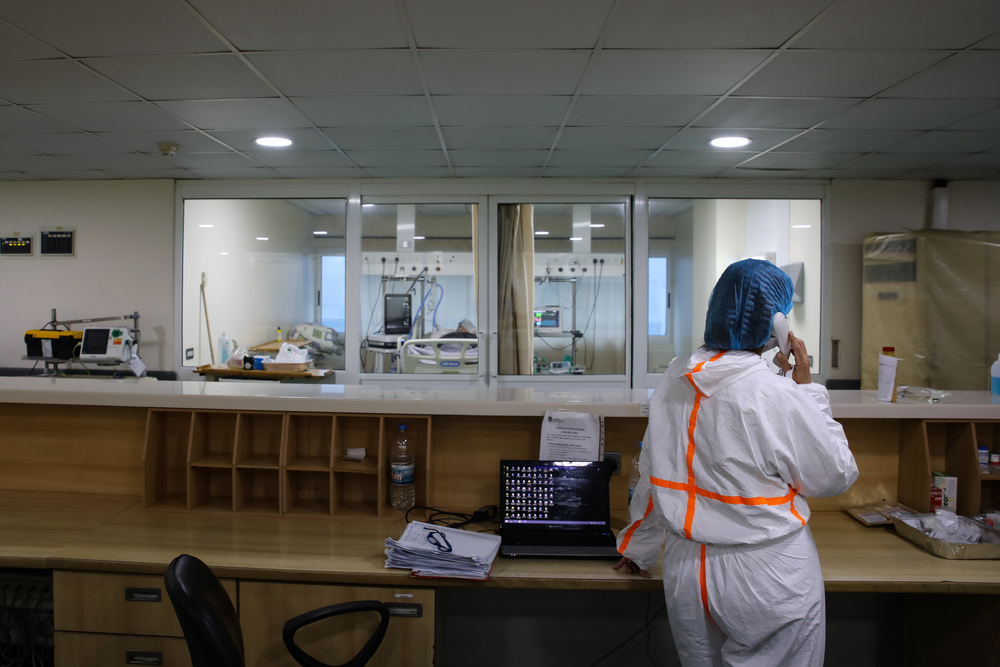The NGO Skoun in Lebanon has updated its latest iteration of its “safe hospitals” map, outlining all the institutions that do not report cases of overdoses to the police. The map aims to guide people who use drugs to access emergency health services without further risk of criminalisation, safeguarding their health and freedom.
The accidental criminalisation of overdoses
Drug use is criminalised in Lebanon, meaning that people who use them remain hesitant to disclose their drug use for fear of legal repercussions. While it is unfortunately common for people who use drugs to experience discrimination when accessing medical services, hospitals across Lebanon have exacerbated these harms by reporting overdose cases to the police.
“The fear of possible criminal consequences can shape people’s health decision-making”, Michelle Wazan, Skoun’s Drug Policy & Advocacy Department Manager, told TalkingDrugs.
This medically abusive practice stems from a legal misinterpretation of an edict published in 2006 by the Internal Security Forces (ISF), the Lebanese police and security force. The circular 55/1 (found in Skoun’s report) required hospitals to report “incidents caused by a third party”; while this was meant to include medical incidents related to gunshot wounds, stabbings and car accidents, it has been interpreted to include overdoses.
The MoPH issued another document in 2016 clarifying that incidents by a third party “do not include addiction and overdoses”, and that such disclosure could cost lives. The MoPH even informed police forces in 2019 of the health rights of people who use drugs, and that this discriminatory practice should be suspended.
Why has this practice persisted then? “The main reason hospitals continue reporting is that emergency room staff declare they have no knowledge of the circulars… The Ministry of Public Health does not systematically nor regularly monitor the reception and implementation of its circulars,” Wazan told TalkingDrugs.

Persistent medical advocacy
Beyond the map, updated annually by Skoun since 2016, the organisation also works with hospitals to end overdose reporting. Wazan highlighted how hospital staff have been fairly receptive to Skoun’s advocacy. “One hospital that had not been marked as safe before, reported having changed its policy after receiving the circulars from Skoun.”
The latest iteration of the map showed that 40 hospitals across the country did not call the police. This figure rose from 27 from 2022. Despite this increase, this means that of the 141 private and public hospitals registered in Lebanon, only 28% respect drug users’ health rights.
Of the 40 hospitals that do not call the police, eight are publicly run; the rest are private. In 2023, there were three new districts that now had safe hospitals compared to 2022. About 40% of the hospitals across Lebanon claimed they had never received the 2016 document clarifying the protection of drug users’ health rights. Skoun believes this may be due to a medical brain drain caused by the continued economic crisis in Lebanon, which led to an estimated 40% of doctors and 30% of nurses leaving the country in 2021, taking this procedural knowledge with them.
“The practice of reporting overdoses to law enforcement is in violation of the right to life… it also contravenes the code of medical ethics as well as the clear directives of the Ministry of Public Health,” Skoun wrote in their annual mapping report.
As part of their recommendations to end this practice, Skoun recommends the MoPH to issue a new document to incorporate the police reporting prohibition into hospital’s internal policies. They further recommend other medical agencies, such as the Order of Physicians, to the Lebanese Red Cross, to ensure that the reporting prohibition is adhered to widely, and that all staff is aware of how they should protect the health rights of people who use drugs.
Skoun’s 2023 report on hospital mapping can be found here. The 2023 hospital map is here.


